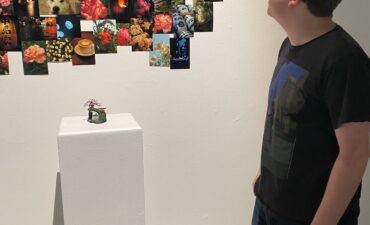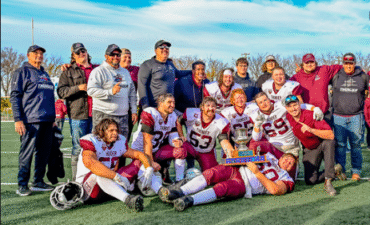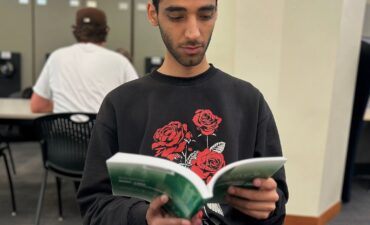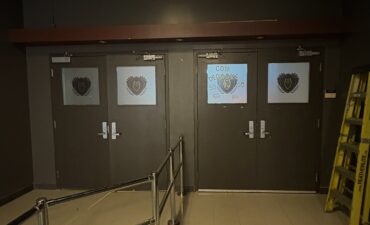
Arslan Azeem has developed a clever solution to a problem that affects thousands: an adaptive camera accessory for left-handed photographers and cinematographers.
Azeem, a University of Regina student, was born with brachial plexus palsy, a condition that affects the nerves in his right shoulder and arm, leaving it paralyzed. As a photographer, Azeem has difficulty operating cameras, all of which are designed for right-handed use. According to Left-handedness, a paper published in the Psychological Bulletin, a mere 10 per cent of the world’s population is left-handed. As a result, there are currently no left-handed digital single-lens reflex (DSLR) cameras on the market.
“There isn’t enough demand that [camera companies] would want to put in millions of dollars in upfront costs,” said Azeem. “There’s a lot of technology that would have to be remodeled and reformatted so that all of the buttons would be on the left hand side.”
Inspired by his own challenges, as well as an unsuccessful petition aimed at Canon a few years ago to create left-handed cameras, Azeem developed a simple, but effective solution.
“Essentially it’s a rig that’s attached to the bottom of the camera and wraps around it,” said Azeem. “There’s a remote on the left hand side of the camera that’s attached to the entire rig, and that remote has all of the primary functions that would be on the right-hand side of the camera.”

This adaptive camera rig, called Readapt, is being developed as a project through ENACTUS Regina, an international university club based around social innovation and entrepreneurship. Azeem is both the ENACTUS Regina group president and project manager for Readapt.
In order to make the device accessible for those who need it, the Readapt team chose to make this a not-for-profit business.
“We built [the rig] in a way that could be 3D printed for $30-$50,” said Azeem. “So now instead of building a several million dollar assembly line that would build 900, $1000 cameras, now instead we’ve built a very cheap method to assemble an accessory that is less than $100 and that serves the same function.
Faculty supervisor for the Readapt team, Lisa Watson, is an associate professor in marketing for the Paul J. Hill School of Business at the University of Regina. Watson says she’s impressed by the group and its ideas.
“I’ve always been really impressed by students on the Prairies and in Regina who really want to make a difference and make the world a better place,” said Watson. “I’m not the one doing the day-to-day work, it’s all our students.”
Watson says groups like this are important for universities.
“Universities are about creating great global citizens and I think this is one of those ways that we’re providing those opportunities to our students to get out there and make a difference in the world,” said Watson. “We’re a smaller club but a really committed club and the projects that we do really have legs.”
The Readapt team presented its project in the 2019 ENACTUS Regional Exposition – Western Canada from Feb. 28 to March 1. While the team didn’t place in the competition, Readapt came away with positive feedback from the judges.
The team is now preparing its project for the ENACTUS National Exposition, which will be held in Vancouver in May 2019. It is also working towards more adaptive disability devices.
“After creating the adaptive camera rig, it sort of spurred into a non-profit organization that builds accessibility devices,” said Azeem.
“I personally feel that a lot of disabled people don’t have a strong voice in tech in terms of accessibility so this would be helping a niche group of people who really needs specialized systems like this to live dignified lives,” said Azeem.















